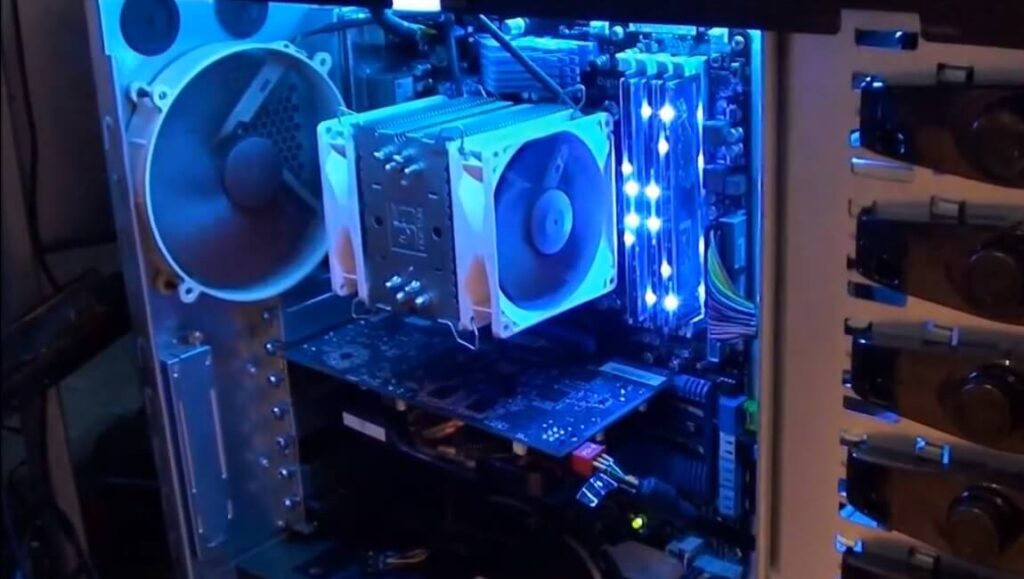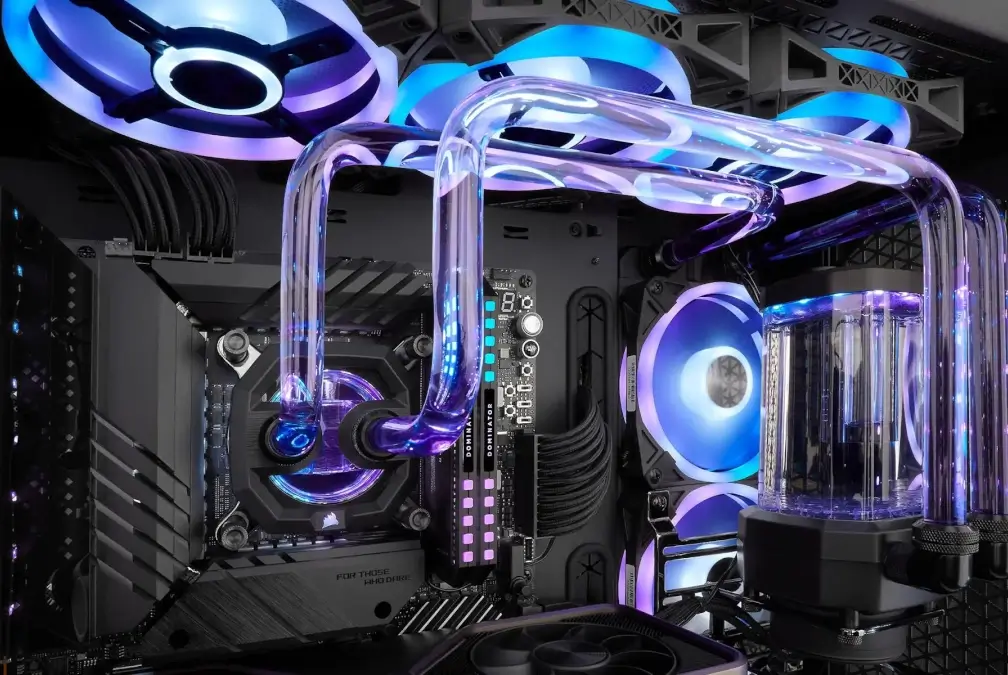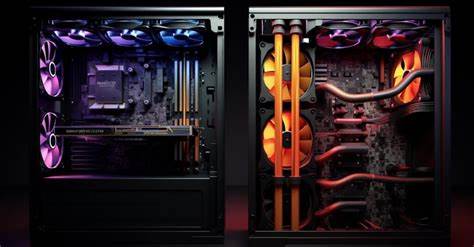Building or upgrading a PC comes with many decisions, and one of the most crucial is choosing the right cooling solution. Overheating can lead to reduced performance and even long-term damage to your components, making an efficient cooling system essential. The two main options—liquid cooling and air cooling—each have their own advantages and drawbacks. Understanding the differences will help you determine which is best for your needs, whether you’re a casual user, gamer, or overclocking enthusiast.
How Does Air Cooling Work?
Air cooling is the most common and affordable cooling method for PCs. It relies on heatsinks and fans to dissipate heat generated by the CPU and GPU. A heatsink, typically made of aluminum or copper, absorbs heat from the processor. The attached fan then expels the hot air away from the components, keeping the system at optimal temperatures.

Advantages of Air Cooling
- Cost-Effective: Air coolers are generally more affordable than liquid cooling solutions.
- Easy Installation: Air coolers require minimal setup and are easy to maintain.
- Reliability: With no liquid involved, air cooling eliminates risks of leaks that could damage internal components.
Disadvantages of Air Cooling
- Size and Clearance Issues: Some high-performance air coolers are bulky and may not fit in compact PC cases.
- Noise Levels: Large fans spinning at high speeds can generate noticeable noise, which may be disruptive in quiet environments.
- Cooling Efficiency Limitations: While sufficient for standard use, air cooling may struggle to maintain low temperatures in extreme workloads such as overclocking or high-end gaming.
Learn more about how air cooling works.
How Does Liquid Cooling Work?
Liquid cooling, also known as water cooling, uses a closed-loop or custom-loop system to dissipate heat more efficiently. A pump circulates coolant through tubes connected to a water block attached to the CPU or GPU. The liquid absorbs the heat and transfers it to a radiator, where fans then expel the heat from the system.

Advantages of Liquid Cooling
- Superior Cooling Performance: Liquid cooling provides more effective heat dissipation, making it ideal for high-performance PCs.
- Quieter Operation: Since liquid coolers rely on larger radiators and lower-speed fans, they tend to produce less noise compared to air cooling.
- Aesthetic Appeal: Many liquid cooling systems come with customizable RGB lighting, enhancing the visual appeal of gaming setups.
Disadvantages of Liquid Cooling
- Higher Cost: Liquid cooling solutions, especially custom loops, can be significantly more expensive than air coolers.
- Complex Installation: Installing a liquid cooling system requires more time, effort, and technical knowledge.
- Risk of Leaks: Although modern liquid coolers are well-designed, there is always a slight risk of leaks, which can cause serious damage to components.
Check out this detailed guide on liquid cooling.
Air Cooling vs. Liquid Cooling: Which Should You Choose?
Your choice between air cooling and liquid cooling depends on factors such as budget, performance needs, and personal preference. Here’s a breakdown based on different scenarios:
For Budget-Conscious Users
If you’re building a PC on a budget, air cooling is the more economical option. A good aftermarket air cooler can provide adequate thermal performance without breaking the bank.
For Gamers and Power Users
If you run resource-intensive applications, play high-end games, or overclock your CPU, liquid cooling is the better choice. It helps maintain lower temperatures, which can improve system stability and extend component lifespan.
For Silent PC Enthusiasts
If noise is a concern, liquid cooling offers quieter operation compared to high-RPM air cooling fans. With a large radiator and slower fan speeds, a liquid-cooled system runs more silently.
Discover the best cooling solutions for gaming PCs.
Maintenance and Longevity
Another factor to consider is maintenance. Air coolers require occasional dust cleaning but have minimal upkeep. Liquid coolers, especially custom loops, may need periodic refilling, leak checking, and coolant replacement. If you prefer a low-maintenance solution, air cooling might be the best choice.
Find out more about PC cooling maintenance.
Final Thoughts
Choosing between air cooling and liquid cooling depends on your priorities. Air cooling is cost-effective, reliable, and simple to maintain, making it suitable for most users. On the other hand, liquid cooling excels in performance, noise reduction, and aesthetics but comes with higher costs and installation complexity. By evaluating your needs and budget, you can select the cooling solution that best fits your PC build.
